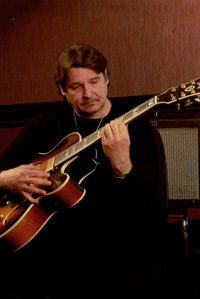"Teaching is what helps to perpetuate music. I teach students exactly the way classical musicians have been taught for the past 400 years or so: by learning pieces of music. Discipline is very important—you have to put the work in. As students learn a piece of music, they learn the techniques, tools, and skills needed to play that piece."
"My philosophy is that you first study the masters, then evolve into your own style. It's a multistage process of learning the vocabulary and what the masters did with it. The next part is to dig inside themselves and find out how to create their own sounds through the vocabulary of jazz—not to try to reinvent the vocabulary, but use it to invent new things."
"Because jazz music is played primarily by ear, I train students' ears to hear the vocabulary at a higher level, then learn to read. It's exactly the way human beings learn language: they learn how to speak first, and then learn how to read and write. I'd been teaching this way for years, before I heard about the Suzuki method, which uses the same approach to teach music to young children."
"In the Wes Montgomery Ensemble, I stress the importance of listening and communicating. I want them to play as a cohesive band—to play with individuality, but not as individuals. And that involves the ability to listen, react, and respond to each other spontaneously on a very high level. The first week starts out with everybody playing their own stuff. I can always hear when they're not listening, so I'll stop them and ask, did you hear what that drummer just did? They stop and they listen, and start paying more attention. It's not something that happens overnight, but by the end of the semester they become one with each other: they start hearing what each other does, they know each other's strengths and weaknesses, and they work together as a team."
"I'm a very open teacher; I don't hide anything. My students know that when they ask me a question, I'll always give them a straight answer. They in return are very straightforward with me, and that helps me gauge more easily how things are going with my students."

